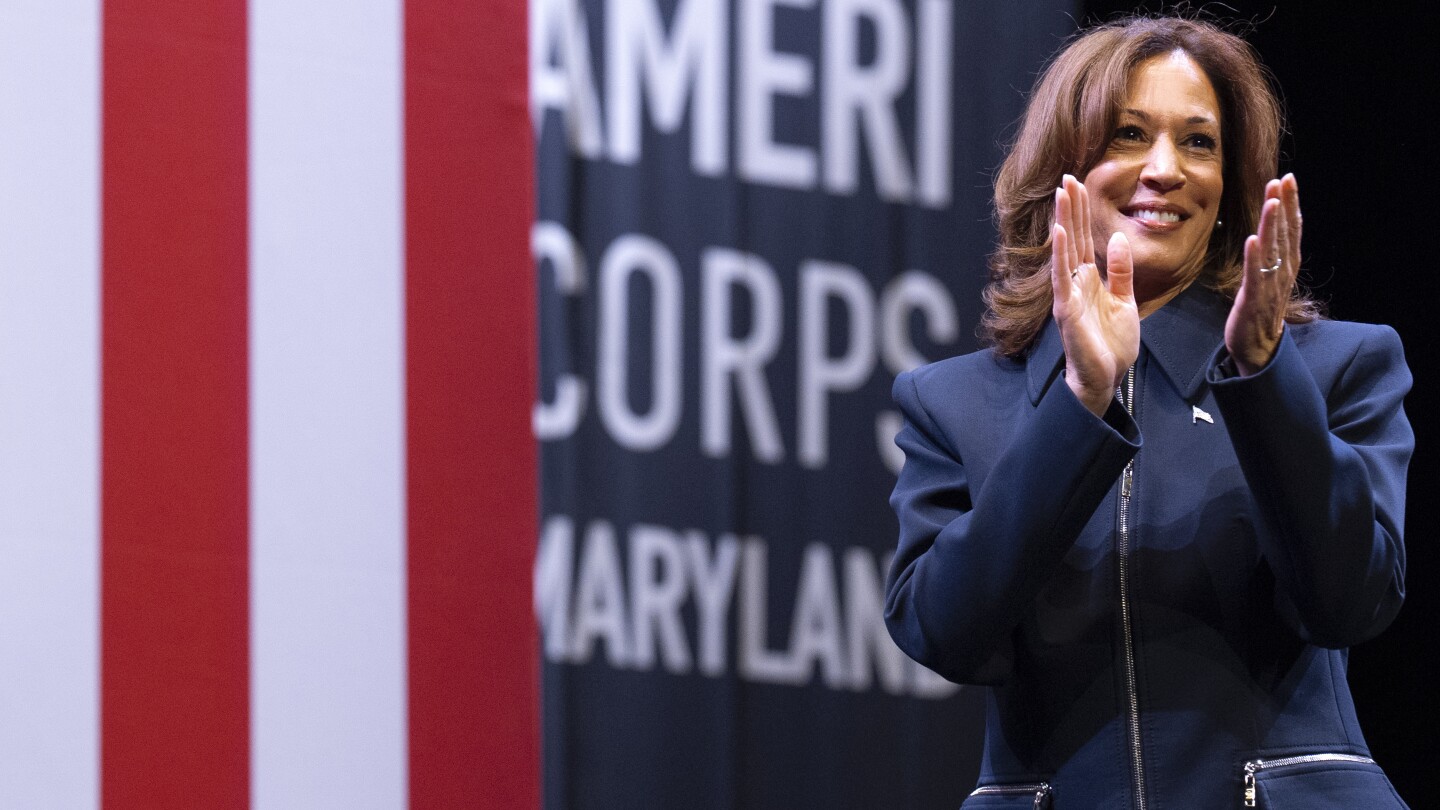Empowering the Next Generation: Kamala Harris Calls for Political Engagement Among Students
In a recent address that resonated deeply with students across the nation, Vice President Kamala Harris urged young individuals to harness their political power and continue advocating for change in the aftermath of the elections. Her speech not only highlighted the importance of civic engagement but also underscored the critical role that the youth play in shaping the future of democracy.
The Importance of Political Advocacy
Vice President Harris’s message is particularly timely given the current political climate in the United States. With growing polarization and a myriad of pressing issues—such as climate change, social justice, and economic inequality—students today find themselves at the forefront of activism. Harris emphasized that the voices of young people are essential in driving policy changes and influencing the direction of the country.
Students as Change Agents
Historically, student movements have played a pivotal role in American political history. From the Civil Rights Movement to the anti-war protests of the 1960s, students have often been the catalysts for significant social change. Today, issues such as gun control, climate action, and racial equality continue to inspire youth activism.
- Gun Control: Following a series of tragic mass shootings, students have mobilized nationwide, advocating for stricter gun laws and promoting the “March for Our Lives” movement.
- Climate Change: The rise of figures like Greta Thunberg has inspired countless young people to engage in environmental activism, demanding urgent action from policymakers.
- Racial Equality: The Black Lives Matter movement has seen significant participation from students, highlighting the ongoing struggle against systemic racism and police violence.
Harris’s speech serves as a reminder that the energy and passion of the youth are vital for sustaining these movements. She encouraged students to not only vote but also to engage in conversations about the issues they care about, reminding them that advocacy takes many forms.
Strategies for Student Engagement
Harris outlined several strategies for students to remain engaged in political advocacy:
- Education: Understanding the political process is crucial. Harris advised students to educate themselves about local, state, and federal issues and to seek out resources that can help them navigate the complexities of governance.
- Community Involvement: Getting involved in local organizations and community projects can amplify students’ voices and strengthen their impact.
- Utilizing Social Media: In today’s digital age, platforms like Twitter, Instagram, and TikTok are powerful tools for mobilization and activism. Harris encouraged students to use these platforms responsibly to spread awareness and advocate for change.
- Coalition Building: Collaborating with diverse groups can enhance advocacy efforts. Students are encouraged to build coalitions across issues and demographics to create a more unified front.
Broader Implications of Youth Engagement
The implications of increased youth engagement in politics are profound. As the demographic landscape of the United States continues to evolve, the participation of young people is crucial for ensuring that the government reflects the diversity of its constituents.
Impact on Future Elections
Young voters have the potential to swing elections, as evidenced by recent trends showing higher turnout rates among younger demographics. According to the U.S. Census Bureau, voter turnout among those aged 18-29 rose significantly in the 2020 election, suggesting that when mobilized, this demographic can be a formidable force.
Moreover, as issues like climate change and social justice become increasingly central to political discourse, candidates are more likely to prioritize these topics to appeal to younger voters. This shift in focus can lead to policy changes that may not have been possible without the persistent advocacy of young individuals.
Challenges to Engagement
Despite the enthusiasm for political engagement, students face numerous challenges that can hinder their involvement:
- Apathy and Disenfranchisement: Many young people feel disillusioned by the political system, believing that their voices do not matter or that change is unattainable.
- Access to Resources: Not all students have equal access to educational resources or platforms for advocacy, which can create disparities in engagement opportunities.
- Political Polarization: The current divisive political climate can deter students from engaging in political discussions, fearing backlash or conflict.
Addressing these challenges requires concerted efforts from educational institutions, community organizations, and political leaders to create inclusive environments that foster civic engagement.
The Role of Educational Institutions
Educational institutions play a pivotal role in nurturing politically active students. Schools and universities can implement programs that encourage civic engagement by:
- Curriculum Development: Incorporating civic education into the curriculum can equip students with the knowledge and skills necessary for political participation.
- Support for Student Organizations: Providing resources and support for student-led organizations can empower young people to organize events, discussions, and advocacy efforts.
- Encouraging Dialogue: Creating spaces for open dialogue about political issues can help students feel more comfortable discussing their views and developing their advocacy skills.
Conclusion: A Call to Action
Vice President Kamala Harris’s passionate address serves as a clarion call for the youth of America to engage actively in the political landscape. As the nation faces unprecedented challenges, the contributions of young advocates are more critical than ever. By empowering themselves through education, community involvement, and effective use of technology, students can take charge of their futures and influence the trajectory of democracy.
In a world where their voices can lead to tangible change, the onus is now on the younger generation to rise to the occasion, advocate for their beliefs, and ensure that their perspectives are heard. The future is not just in the hands of politicians; it is also in the hands of those who demand a better tomorrow. As Harris concluded her address, the message was clear: the fight for justice and equality is far from over, and the next generation will play a pivotal role in shaping that narrative.
See more BBC Express News

